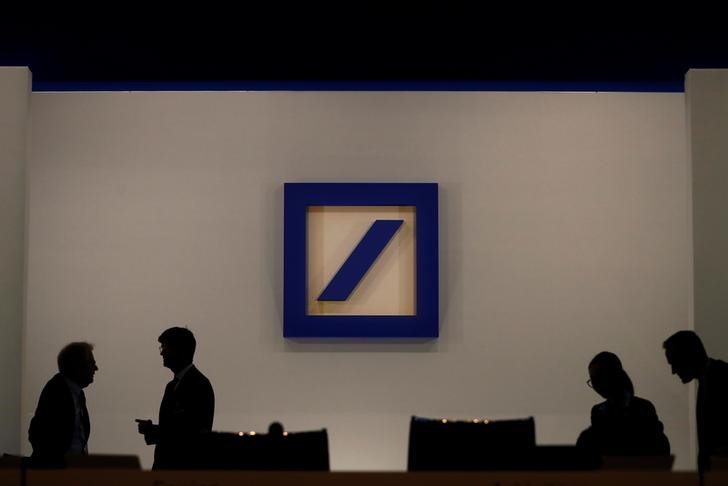(Bloomberg) -- Deutsche Bank AG (DE:DBKGn) faces another potential clash with regulators as the European Central Bank weighs whether to open a formal investigation into unapproved purchases of its own subordinated bonds.
The ECB is looking at Deutsche Bank’s buying of the notes over several years up until 2017, when it got approval for future deals, according to people familiar with the matter. Because the securities are designed to help banks absorb losses when they run into trouble, the regulator needs to sign off on any repurchases.
Deutsche Bank could be subject to a fine if formal proceedings are opened, according to the people, who asked for anonymity because the matter hasn’t been disclosed. Sueddeutsche Zeitung, which first reported the ECB’s deliberations late Tuesday, said a fine could reach twice the profits or savings a bank makes from unauthorized dealings, though it was unclear whether Deutsche Bank would be fined at all.
The ECB and Deutsche Bank declined to comment.
The German lender has already paid more in fines and legal settlements than almost any other European bank since the start of 2008. While failing to get permission for bond purchases pales in comparison with other misconduct, another probe would be an unwelcome distraction for Chief Executive Officer Christian Sewing after he said the bulk of the firm’s legal woes were behind it.
The transactions were conducted to ensure sufficient liquidity for investors in additional Tier 1 bonds, debt that can be written off if the lender’s capital ratio falls to a certain level, said one of the people. The securities have proven volatile over the past years because markets worried about the bank’s costly restructurings and large fines.
There are other reasons why banks may want to buy back their own debt. They include retiring bonds that no longer qualify as regulatory capital, or replacing them with notes that pay lower interest.
